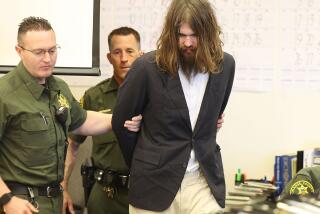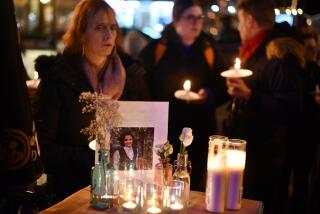Abraham Biggs’ online suicide
In 1964, Kitty Genovese was stabbed as she walked home late one night in Queens, New York. But she didn’t die right away. Genovese, 29, cried for help, and in the densely populated neighborhood, many heard her. Someone shouted “Leave that girl alone!” and her attacker fled. But then he circled back, and the attack resumed. She screamed for help again, but none came.
In the aftermath of Genovese’s murder, a horrified nation wondered more at the indifference of those who heard or witnessed her struggles than at the psychopath who killed her. Psychologists called the phenomenon “diffuse responsibility,” positing that the more people who are present during a crisis, the fewer who feel directly responsible to resolve it.
The Internet generation probably doesn’t remember the revulsion caused by the Genovese murder, but now, tragically, there is a modern case of bystander apathy. Abraham Biggs, a 19-year-old student at Broward College in Florida, invited viewers of the live video website Justin.tv to watch him commit suicide, and they did.
According to published accounts, some thought he was joking; others egged him on, laughing and encouraging him to swallow the pills he had handy. Some tried to talk him out of it, and apparently more than one onlooker contacted the website’s moderator. Twelve hours after he first told the cyberworld that he planned to commit suicide, and four hours after the webcast began, his webcam transmitted images of police entering his bedroom and finding his lifeless body.
Biggs’ family says the troubled teen, who suffered from bipolar disorder, was sending a cry for help to a heartless audience. And the enthusiasm with which some viewers apparently watched him die is chilling. Whether Justin.tv shares any responsibility in the matter will be determined by the police.
For those who genuinely enjoyed watching Biggs’ distress, Genovese’s murderer, Winston Moseley, offered what may be regarded as a twisted prophecy. Complaining to a parole board that he was suffering, Moseley whined: “For the victim outside, it’s a onetime or one-hour or one-minute affair. But for the person who’s caught, it’s forever.”
Biggs wasn’t murdered. But for those who did nothing while he died on their screens, the future offers precisely what it did for Genovese’s indifferent neighbors: a lifetime to wonder and regret.
More to Read
A cure for the common opinion
Get thought-provoking perspectives with our weekly newsletter.
You may occasionally receive promotional content from the Los Angeles Times.






